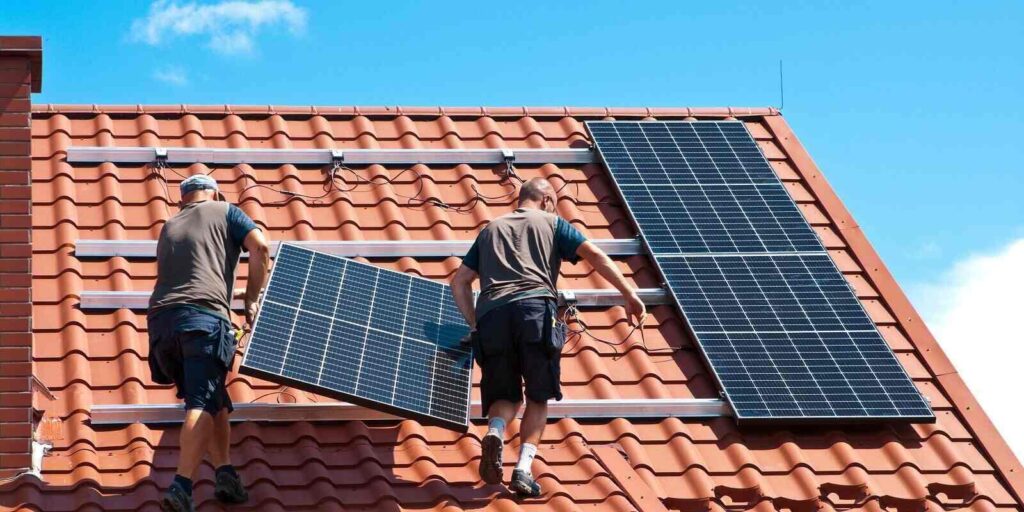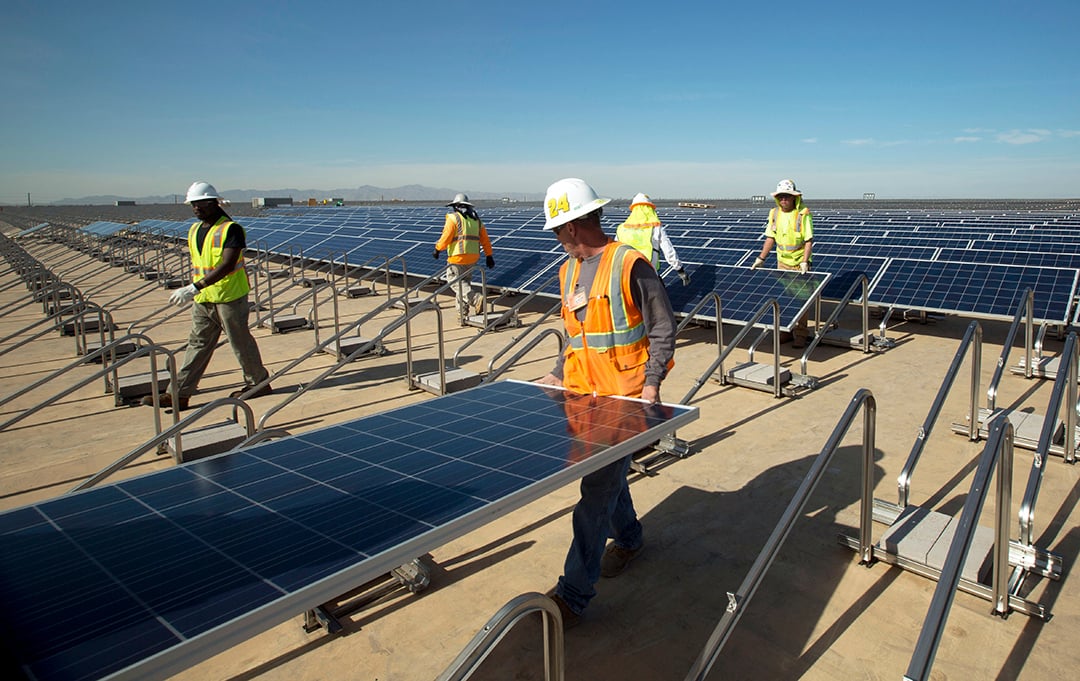Why Solar Energy Setup Is the Smart Choice for Your Home or Organization
The decision to set up solar energy in your house or business is significantly recognized as a tactical financial investment, driven by a mix of financial incentives and environmental factors to consider. With the possibility for substantial energy cost savings, combined with federal government motivations, the initial costs can be balanced out dramatically. Embracing solar energy not only enhances your residential or commercial property's value yet likewise adds to a much more sustainable future. However, the ramifications of this option prolong beyond simple expense savings and looks, motivating a more detailed exam of the more comprehensive advantages and prospective difficulties related to solar power adoption.
Financial Savings and Incentives
Buying solar power installments can substantially decrease power expenses for homeowners and services alike. By utilizing power from the sun, residential or commercial properties can create their own power, resulting in significant cost savings on month-to-month utility expenses. In a lot of cases, these savings can balance out the initial setup prices within a few years, supplying an eye-catching roi.
Additionally, many monetary incentives exist to motivate solar fostering. Federal tax credit histories, such as the Financial Investment Tax Credit History (ITC), enable property owners and businesses to subtract a considerable portion of solar installment expenses from their government taxes. solar photovoltaic. Lots of states and local federal governments likewise supply discounts, gives, or performance-based incentives, better boosting the price of solar systems
Funding choices, consisting of solar loans and leases, are offered to relieve the upfront financial concern. With these plans, home proprietors can spread the expense of installation over time, often paying less than their previous electricity expenses.
Furthermore, the boosting value of homes outfitted with solar systems makes them a lot more eye-catching in the property market. Overall, the monetary benefits of solar energy setups are engaging, making them a sensible financial investment for the future.
Ecological Influence and Sustainability

In addition, solar setups can lower dependence on non-renewable sources, such as coal and gas, which can lead to environment devastation and contamination via removal and burning processes. By transitioning to solar power, property owners and organizations proactively participate in reducing their carbon footprint, promoting a healthier environment.
In addition, the production of photovoltaic panels has actually come to be extra reliable and much less harmful to the environment over the years. Many producers are now committed to using sustainable techniques, consisting of reusing products and lessening waste.
Power Self-reliance and Stability
Achieving power freedom via solar energy setups empowers individuals and areas to lower their dependence on imported nonrenewable fuel sources. This shift not only boosts neighborhood power safety however also maintains power expenses in time. With solar energy, home owners and organizations can produce their own electricity, minimizing the effect of varying power costs driven by global markets.
Solar installments supply a sustainable choice that assists buffer versus geopolitical tensions and supply chain disturbances connected with nonrenewable fuel source dependancy. By utilizing sunlight, neighborhoods can cultivate a self-dependent energy structure, guaranteeing regular access to power no matter of outside variables. This self-reliance fosters economic strength, as energy production ends up being local, maintaining even more funds within the neighborhood.
Moreover, the transition to solar energy adds to grid stability. Distributed planetary systems can alleviate stress on conventional power grids, minimizing the probability of blackouts during peak need durations. As more entities embrace solar innovation, the collective change towards renewable resource sources magnifies the total stability of the power landscape. Ultimately, accepting solar energy not only promotes specific and area empowerment but additionally sustains national goals for a sustainable and trustworthy energy future.

Technical Developments in Solar
Improvements in solar modern technology are changing the way power is used and utilized, even more sustaining the energy freedom achieved through solar installations. Innovations in solar (PV) cells, especially the development of bifacial panels, enable enhanced energy capture by absorbing sunshine from both sides. This innovation boosts effectiveness and optimizes energy output, making solar installations more reliable than ever.
Furthermore, renovations in power storage space remedies, such as lithium-ion batteries, use property owners and services the capability to keep excess energy created throughout height sunlight hours. This capacity makes certain a constant energy supply throughout durations of reduced sunshine, boosting power integrity and decreasing reliance on the grid.
Smart inverters have also become an important part of modern-day planetary systems, giving real-time monitoring additional resources and optimization of energy use (solar photovoltaic). These systems allow users to handle their energy consumption wisely, causing lowered prices and enhanced effectiveness